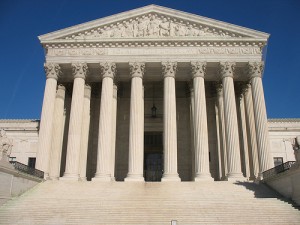Supreme Court Rules Maryland May Not Double Tax
Posted
22 May 2015 in Case Notes, IMLA Briefs
In a 5-4 decision in Comptroller v. Wynne the Supreme Court held that Maryland’s failure to offer residents a full credit against income taxes paid to other states is unconstitutional. The State and Local Legal Center (SLLC)/International Municipal Lawyers Association (IMLA) filed an amicus brief in support of Maryland.
Maryland taxes residents’ income earned in- and out-of-state. If Maryland residents pay income tax to another state for income earned there, Maryland allows them a credit against Maryland’s “state” tax but not its “county” tax. Maryland also taxes nonresident income earned in the state. Nonresidents pay Maryland “state” tax and a “special nonresident tax” equivalent to Maryland’s lowest “county” tax.
The Wynne’s of Howard County, Maryland, received S-corporation income that was earned and taxed in numerous other states. They challenged Maryland’s failure to allow them to claim a credit against their Maryland county taxes as violating the dormant Commerce Clause, which prevents states from discriminating against or excessively burdening interstate commerce.










